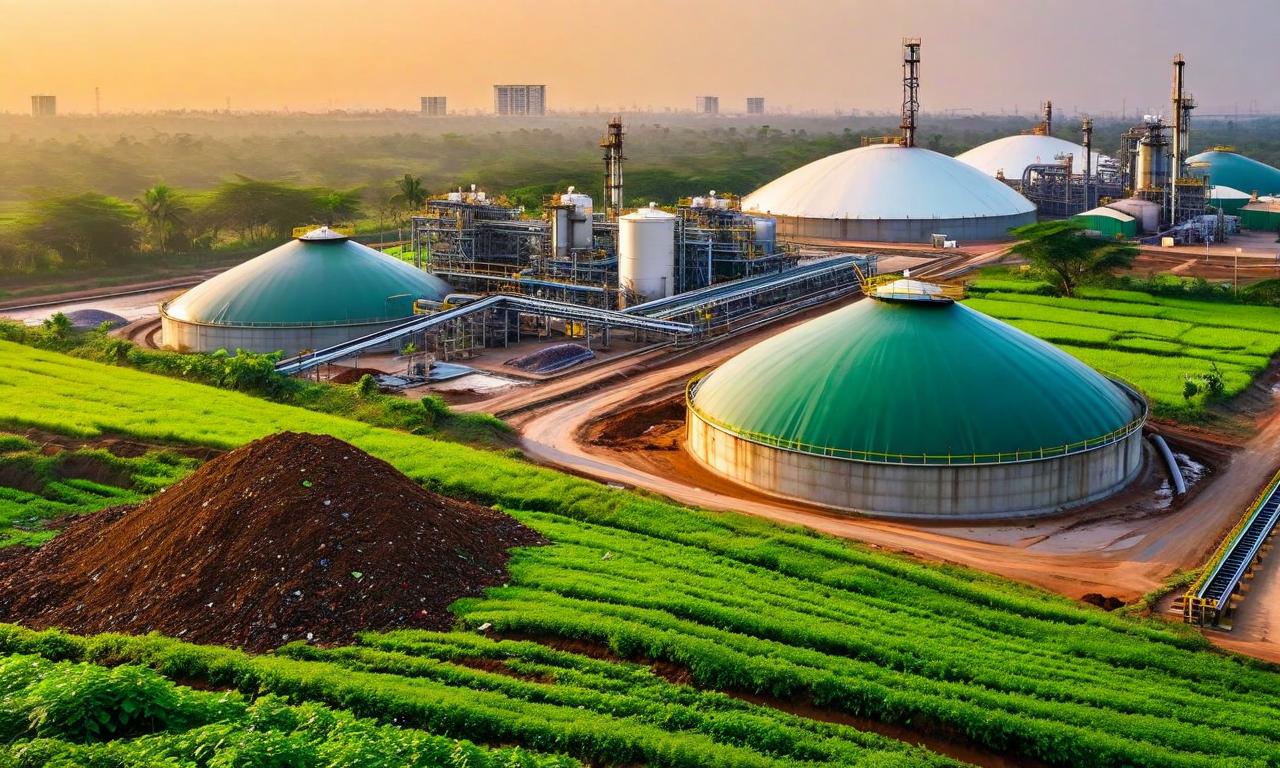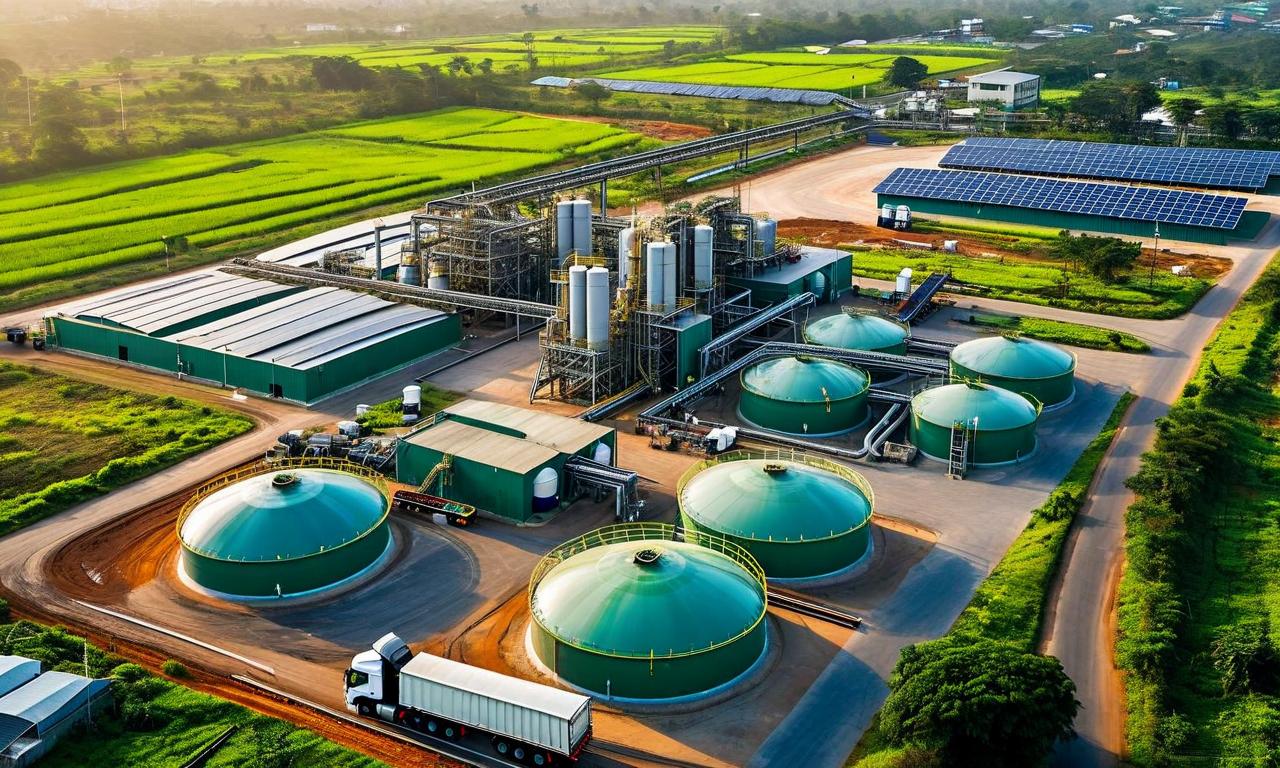GAIL India Inks 25-Year Deal for Eco-Friendly Bio-Gas Plant in Bengaluru
GAIL (India) Limited has entered into a 25-year agreement for a compressed bio-gas (CBG) plant in Bengaluru. The plant will process 300 tons of waste daily, producing 12.60 tons of CBG and 22.00 tons of fermented organic manure. Located on 18 acres provided by GBA, this initiative aims to promote sustainable energy production and efficient waste management.

*this image is generated using AI for illustrative purposes only.
GAIL (India) Limited , the country's largest natural gas company, has taken a significant step towards sustainable energy production by signing a long-term agreement for a compressed bio-gas (CBG) plant in Bengaluru. This move aligns with India's growing focus on renewable energy sources and waste management.
Key Details of the Agreement
| Aspect | Details |
|---|---|
| Duration | 25 years |
| Location | Bengaluru |
| Land Allocation | 18 acres (provided by GBA) |
| Daily Waste Processing | 300 tons |
| Daily CBG Production | 12.60 tons |
| Daily FOM Production | 22.00 tons |
Project Highlights
The agreement marks a substantial commitment to sustainable energy production and efficient waste management in Bengaluru. The compressed bio-gas plant is designed to process a significant amount of waste daily, converting it into valuable energy and organic manure.
Environmental Impact
This initiative by GAIL (India) demonstrates a dual benefit:
Waste Management: The plant will process 300 tons of waste per day, contributing to improved urban waste management in Bengaluru.
Green Energy Production: The daily output of 12.60 tons of compressed bio-gas will serve as a renewable energy source, potentially reducing reliance on fossil fuels.
Agricultural Benefit
In addition to energy production, the plant will generate 22.00 tons of fermented organic manure (FOM) daily. This by-product can be utilized in agriculture, promoting organic farming practices and potentially improving soil health in the region.
Long-term Commitment
The 25-year duration of the agreement underscores GAIL's long-term vision for sustainable energy solutions. This project could serve as a model for similar initiatives across India, combining waste management with renewable energy production.
As India continues to explore and invest in alternative energy sources, projects like this CBG plant could play a crucial role in the country's energy transition and environmental sustainability efforts. The success of this venture may pave the way for more such collaborations between public sector enterprises and local authorities in the pursuit of cleaner, greener cities.
Historical Stock Returns for GAIL
| 1 Day | 5 Days | 1 Month | 6 Months | 1 Year | 5 Years |
|---|---|---|---|---|---|
| +0.95% | +2.90% | +2.28% | -3.67% | +3.02% | +73.81% |




































